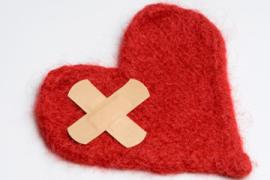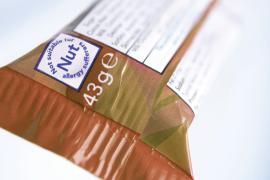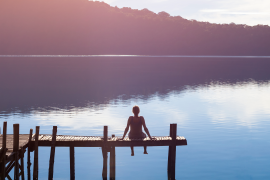The World Health Organization says, “Self-care recognizes individuals as active agents in managing their own health care, in areas including health promotion . . .” and goes on to describe how these actions maintain and improve overall health (2025).
We know about the importance of taking time to get adequate rest, eating healthy, well-balanced meals, limiting screen time and social media, and taking a breather when we need one. But here we will take a deeper dive into unique self-care methods and actions to help you create the best summer yet for yourself and, consequently, your campers.
Why is self-care important? According to many scientific studies, self-care has the ability to:
- Improve your immune system
- Make you more productive
- Make you more resilient
- Allow you to handle stress more effectively
- Allow you to make better health decisions
- Help you live longer (Kenosis Counseling Center, n.d.)
With these potential benefits, who wouldn’t want to put in a bit of extra time to achieve better overall physical and mental health through the act of self-care?
In many ways camp is the ideal setting to take the needed time to practice new and unique self-care skills. The camp setting provides a consistent routine and environment in which many self-care actions occur naturally. Much evidence supports that being outdoors and in nature is one of the most beneficial ways to promote improved physical and mental health. Because many camps use a natural setting to connect campers to nature, as staff, you can also enjoy this benefit. Take some extra time to appreciate nature. Breathe in the smells of the woods, get out on the lake, go for a walk or a hike, and savor a sunrise or sunset.
Taking time to exercise and working regular movement breaks into your daily routine is another well-documented path to improved overall health. Again, camp provides the perfect setting to get moving. As a staff member, if your particular job keeps you indoors for long periods of time, speak with your directors about helping out with an active, outdoor activity for one period every few days. This is an easy way to add more movement to your routine and aid in self-care.
A body of new evidence supports journaling as a self-care activity — especially gratitude journaling, which is a method of selecting three to five things you are grateful for per day. This simple act of recognizing things or events that have provided you with happiness is an easy way to promote improved health (VNS Health, 2025).
Another self-care tip is to take a break from caffeine. If coffee and soft drinks, which contain significant amounts of caffeine, aren’t widely available at your camp, this can be an easy action to achieve. Caffeine is a stimulant that can impede one’s ability to sleep. Sleeplessness has a clear and direct link to lower levels of happiness and productivity, especially in the camp setting.
Listening to music is another effective self-care method. Music is usually widely heard around camp — in dance studios and performance or recording spaces, as well as in most camp cabins. Taking time to stop, listen, and let the music seep into your soul can offer an immediate happiness boost.
Learning a new skill is another important self-care method. What better place to learn a new skill than at camp? Ask your directors for permission to spend time in an area outside of your usual focus, or join in on staff nights that offer activities, as these can often provide new experiences. Actively learn skills from your fellow cabin counselors or coworkers to add to your toolbox. Learning a new skill stretches the brain in novel ways, creating new paths to improved mental health (Harrison, 2021).
Finally, don’t forget to stay connected to friends and family. Hearing a friendly and trusted voice on the phone that offers comfort and advice is a surefire way to uplift your mood (VNS Health, 2025). Carve out some time to make sure you are able to keep these connections going throughout the busy camp summer.
Taking the time to explore new methods of self-care while in the camp setting is crucial to maintaining health and happiness, which will ultimately provide the best experience for you and your campers alike.
References
- Harrison, L. (2021). 4 lesser-known self-care tips for 2021. Working for Change. workingforchange.com/4-lesser-known-self-care-tips-for-2021
- Kenosis Counseling Center. (n.d.) 10 unexpected ways to do mental health self-care. kenosiscenter.com/10-unexpected-ways-to-do-mental-health-self-care/
- World Health Organization. (2025). Self-care for health and well-being. who.int/health-topics/self-care#tab_1
- VNS Health. (2025). Nine ideas for self-care when you don’t even know where to start. vnshealth.org/patient-family-support/health-library/nine-ideas-for-self-care-when-you-dont-even-know-where-to-start/
Jane Glazer, MSN, MA, CPNP, FNP-BC, has practiced in urgent care, college health, and residential camp health. She is interested in education, evidence-based best practices, and providing care to campers in a safe and fun way.



